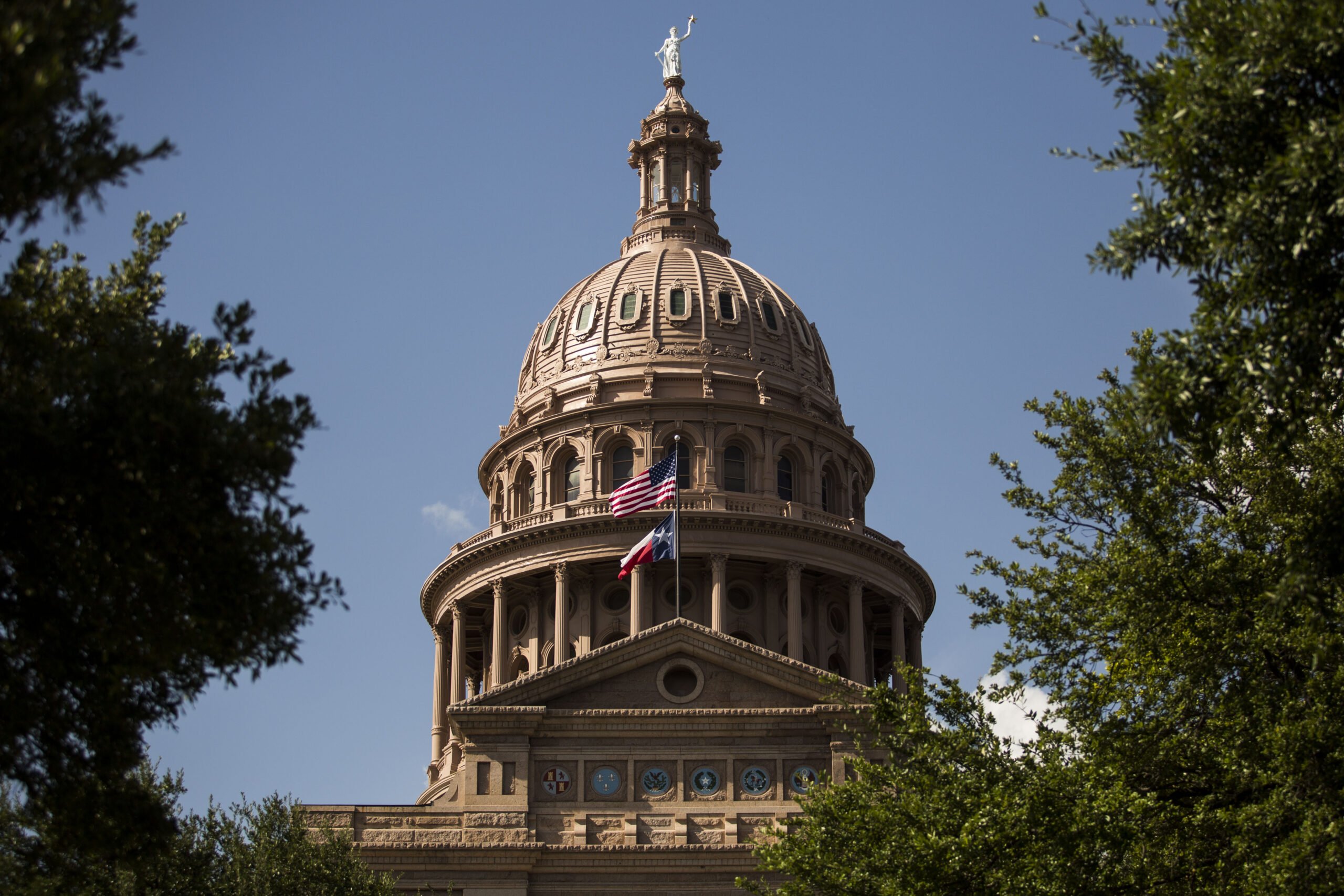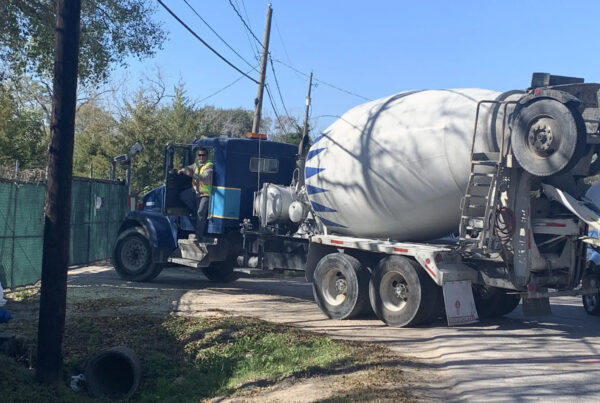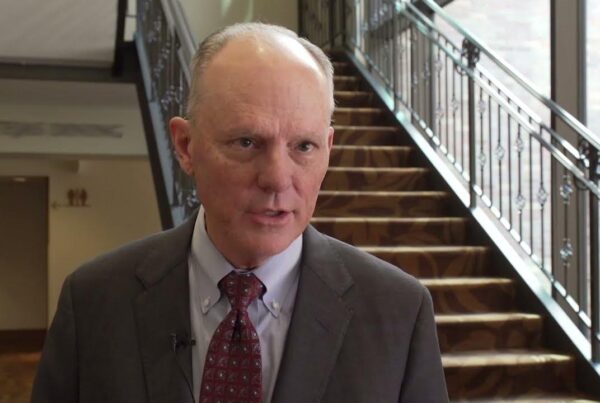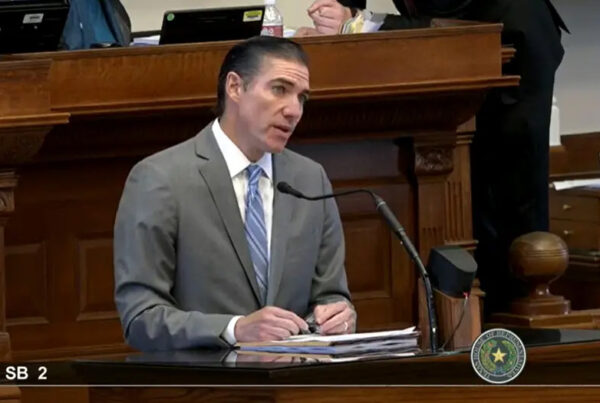Politicians in Texas love to talk about how-business friendly the state is. And for years, the data has backed that up.
CNBC’s annual ranking of the most business-friendly states in America has always included Texas in the top five. Until now.
When the latest rankings came out this week, Texas ranked sixth-best, trailing North Carolina, Virginia, Tennessee, Georgia, and Minnesota. Sixth out of 50 is nothing to sneeze at, but it’s still a drop from where the state has traditionally shown up.
Erica Grieder, business reporter for the Houston Chronicle, spoke to the Texas Standard about the significance of Texas’ drop down the list. Listen to the interview above or read the transcript below.
This transcript has been edited lightly for clarity:
Texas Standard: Before we get too deep into what’s behind these rankings, how much do they matter? I mean, I guess this goes to the court of public opinion, right?
Erica Grieder: Right. Well, that’s a good question. It matters to us, I think, in a pride way because we’re often at the top of these sorts of rankings. And historically, we’ve been at the top or near the top in this particular ranking.
I think the question then, too, is as an economic development issue. If we slide in these rankings, does that complicate that task of pitching the state to other employers, other businesses, other workers?
Well, that’s a good point. I mean, you look at these other five that are ahead of Texas in the CNBC poll: North Carolina, Virginia, Tennessee, Georgia, Minnesota. All but one from the South. What do you make of that?
Well, it’s interesting. You know, a lot of the states that are now in the top five – North Carolina, Tennessee, Georgia – those states have actually adopted a lot of what Texas had been doing in the 2000s, 2010s. So for all those states, economic development has been a big focus. And so I think some of them have looked at Texas – looked at our success in job creation and economic growth in attracting companies to move here – and sort of taking cues from what we were doing in the state.
Interesting. So why do you think Texas, which was an innovator on a lot of levels, has become, well, less business-friendly, at least in the eyes of CNBC?
Well, it’s an interesting question, right?
So this study started in 2007, and so think about what the state was like then, what state leadership was like. It was still a Republican-controlled state. But I think what we’ve seen in the intervening years, from 2007 to today, is that there’s been a bit of shift in priorities.
So we’re hearing a bit more about things like culture war issues, CNBC mentions in there. They actually did a whole write up about us, you know, like why did the state fall out of the top five? And there’s talk about things like the state’s recent ban on DEI offices at universities. They talk about the grid issues.
So I think there’s been a bit of a shift in focus and priorities at the state level.
» GET MORE NEWS FROM AROUND THE STATE: Sign up for our weekly ‘Talk of Texas’ newsletter
You know, I remember when North Carolina was flirting with the idea of one of those so-called bathroom bills. This was several years ago. And there was a real big push from businesses in North Carolina: “Don’t do this, because this is going to hurt our convention traffic” and that sort of thing. I remember when there was something of a push similar to North Carolina’s in Texas and you had a push from business. How much does business carry when it comes to sway and some of these culture war laws that we’ve seen proposed in the Capitol?
Well, I would say business in Texas has less clout than it once did, right? I mean, because, as you say, the business community is pretty vocal in Texas, pretty active with the Legislature, and they do weigh in on certain issues.
But I think that what we’ve seen in recent years is that when they’ve really weighed in on an issue and said “maybe let’s focus on something else,” they haven’t necessarily been heard the same degree that they have been heard previously.
Now, why do you think that is?
I mean, that’s a great question.
It could just be a matter of the individuals involved. It could be that maybe there’s an element of, you know, the state’s been coasting on its laurels because we’ve been so used to this growth and success that it’s become a little bit less of the top line issue.
So thinking about North Carolina, they were growing their economy, and that’s been an important priority for them. And in Texas, we’re used to this growth and this economic development sort of happening on its own. And to be clear, it is still happening. So we’re still doing pretty well in terms of economy and workforce, which is the most important categories in the study. But there has been a bit of a shift away, I would say.
Well, you know, you see Texas slipping in the rankings and yet at the same time it wasn’t just last year that Gov. Greg Abbott was waving the Lone Star flag, saying that Texas now leads the nation as home to the most Fortune 500 companies. So we’re sort of getting two messages on one level. We also hear anecdotally from some business leaders that, you know, you’ve attracted a lot of businesses here – can the infrastructure keep up? So there’s that level of it as well, right?
Yeah, absolutely.
I mean, so one, the grid issue is a big focus point. You know, CNBC points out that access to electricity – reliable electricity – is a big issue for a lot of businesses, especially manufacturing, for obvious reasons. And so even post-the 2021 winter storm, which was a disaster, we still are having about 20 hours a year without electricity on average in Texas, which is third worst among the states. So there’s that.
» RELATED: Report: Texas has the most major power outages of any state in the U.S.
And another thing the study points out, which I think is important, is that the study includes some of these quality of life metrics. You know, environment, crime and so on. And they point out they’re including that because that is a workforce issue, right?
So if it becomes more challenging to recruit skilled workers to your state because they don’t want to live in a state with these policies, perhaps then that becomes a workforce issue over the course of time.
You seem to suggest that Texas’ slide in these rankings, is, you know, let’s take it with a grain of salt. But just how much of a bellwether is this in your own thinking? I mean, could something like this be the kind of tipping point that makes a business owner in California think, “well, maybe it’s not all it’s hyped up to be”?
I think that remains to be seen. But it is interesting.
I mean, in 2017, we ranked fourth, right? And at the time, it sort of raised some alarm among Republicans and Democrats alike in Austin saying, “you know, hey, this is a change for us. We’re used to being number one or number two in this particular study.” And so now, you know, we’re number six.
It’s not too shabby. It’s not the end of the world. You know, it’s not bad to be number six out of 50 necessarily. But looking at the trajectory, I mean, we were fourth in 2021, we were fifth in 2022 and now we’re sixth. So there’s certainly a trend happening here.
Is there anything that officials could do to reverse it at this juncture?
Well, you know, the governor sent out a statement to CNBC saying we’re still creating more jobs than any other state, we have all the Fortune 500 companies. So I’m not sure that it’s been received with that level of alarm.
But I think that, you know, to my mind, it could be an occasion, perhaps a wake up call to say, “hey, you know, why don’t we focus as a state on what we have done well in the past – what’s worked for us, what’s worked for Texas workers and Texas families.” And maybe head more back in that direction.
















